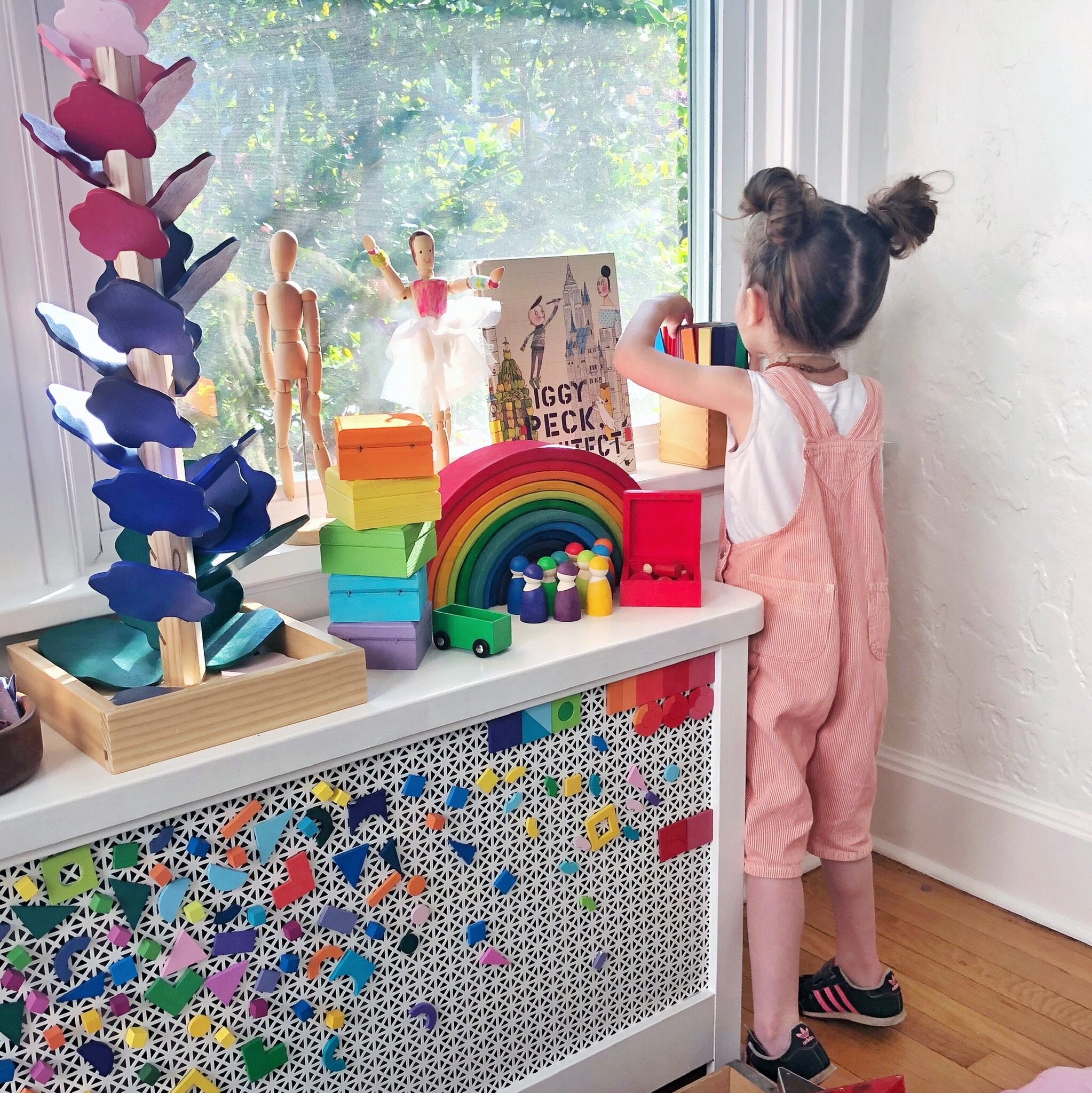Rethinking "Be Careful": Encouraging Self-Trust Over Constant Caution
/Have you ever paused to consider that the frequent caution of telling your child to "Be Careful!" might actually inhibit their learning and growth more than protect them? It's an instinctive response for many parents, aimed at preventing harm. Yet, this well-intentioned advice can sometimes do more harm than good, diverting their attention from the essential task of learning to trust themselves and their abilities.
The Unintended Consequences of "Be Careful"
When children are in the midst of exploration, like preparing to jump into a large puddle, hearing "Be Careful!" can cause them to look towards us instead of focusing on their body's movement and landing spot. This shift in focus can detract from their ability to gauge and manage their own risks.
Similarly, closely monitoring every step they take, such as when they climb stairs, may imply that they don't need to be cautious because we're there to catch them if they fall. This assurance, while comforting, doesn't teach them the critical skill of navigating challenges independently.
Moreover, assisting children in ways that bypass their own efforts, like placing them atop a climber they can't reach on their own, may seem helpful. However, it deprives them of the opportunity to develop the necessary strength, dexterity, and problem-solving skills on their own. They learn reliance, not resilience.
Fostering Independence and Self-Trust
So, what's the alternative? How can we support our children's growth and self-confidence without the constant refrain of "Be Careful!"?
Model Careful Behavior: When navigating potentially tricky situations together, such as going up the stairs, model the behavior you want to see. For instance, you might say, "I'm walking slow and steady, holding on to the railing." This approach teaches through example rather than caution.
Encourage Independent Problem Solving: If your child struggles to reach the top of a climber, resist the urge to lift them. Instead, offer verbal support: “You're working hard to climb up. I'm here if you need me." This stance encourages them to trust their abilities and learn through trial and error.
Let Them Experience Risks: In situations like the big puddle jump, sometimes the best action is inaction. Close your mouth, step back, and let them go. Experiencing the consequences of their choices, good and bad, is invaluable for their development.
A Challenge for Parents
Breaking the habit of saying "Be Careful" isn't easy. To truly understand its impact and explore alternatives, try this experiment: Go to a park or playground with another adult in charge of supervising your child. Use this time to observe your child's interactions with their environment. Notice how often they navigate successfully without intervention. Pay attention to their reactions when they hear "Be Careful" and where their focus shifts. You'll likely discover that they're more capable and aware than you might have thought.
Through mindful observation and a shift in our responses, we can empower our children to trust themselves, assess risks, and navigate the world with confidence. Let's step back and watch them grow, not just in physical prowess but in self-assurance and independence.








Looking for some simple, engaging outdoor activities to bridge the post-nap to dinner gap?